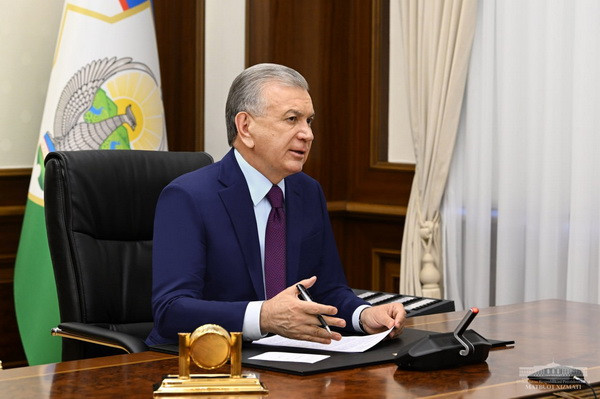Shavkat Mirziyoyev Signs Landmark Law on Land and Property Rights

Tashkent, The Gulf Observer: President Shavkat Mirziyoyev signed a significant new law titled “On Recognizing Rights to Land Plots and Buildings Illegally Occupied.” This landmark decision is set to impact millions of families across the country, addressing long-standing issues related to land ownership and property rights.
The newly enacted law addresses over 3.6 million land plots currently lacking complete legal documentation or formal recognition. This development follows a call by President Mirziyoyev on 21 November 2023 for a legal resolution during a video conference on land accounting and cadastre. The law was developed with contributions from sector specialists and deputies, incorporating best practices from Italy, Bulgaria, Croatia, the Czech Republic, and other nations. It underwent thorough review and revision by the chambers of the Oliy Majlis.
Comprising six chapters and 35 articles, the law provides for the recognition of rights to various types of land plots and properties, including:
- Land plots occupied illegally by individuals before 1 May 2018, designated for personal housing construction, along with any structures built on them.
- Land plots occupied by individuals and organizations beyond the documented area before 1 May 2018, and the structures thereon.
- Land plots with partially recognized rights from the “one-time action” and the associated structures.
- Land plots allocated by district (city) khokims before 8 June 2021 but not approved by regional hokims or the People’s Deputies Council.
- Residential premises within horticultural and viticultural associations, including the land they occupy.
- Land plots belonging to entrepreneurs in small industrial zones before 9 March 2020.
- Land plots occupied by buildings and houses privatized by government order.
- Land plots occupied by buildings and houses recognized as property by hokim decisions.
The law sets forth specific conditions for recognizing rights, such as ensuring the land plot is not allocated to others or auctioned, no disputes exist, and there is no conflict with the master plan. Recognition will occur in stages by region, with information and document coordination managed through the automated Cadastre Agency information system. This system will also integrate data from 15 authorized organizations.
Verification of document completeness and legality will be undertaken by regional justice departments. Results will be announced on the Cadastre Agency’s website and in neighborhood corners, with SMS notifications sent to citizens receiving positive decisions. Rights recognition will occur quarterly by the regional People’s Deputies Council.
State control over law implementation will be established by prosecution, internal affairs, agroinspection, ecology, and cadastre authorities, with public oversight facilitated through neighborhood public groups. These groups will include district council deputies, neighborhood chairpersons, and active citizens.
A one-time payment will be required for recognizing rights to land plots under residential buildings, privatized or recognized structures. Payment amounts vary by location, with discounts available for individuals in the Unified Social Protection Register and those with disabilities. Funds from this payment will cover cadastre and justice body expenses and contribute to local budget initiatives.
The law will come into effect in three months, during which time explanatory and preparatory work will be conducted. It will remain in force until 1 January 2028.
In the Republic of Karakalpakstan, efforts have already begun in this area. Following a Presidential Decree on 28 July 2023, the region began recognizing rights to undocumented residential houses and land plots, positively impacting over 100,000 citizens. This law will extend similar benefits nationwide, addressing the needs of over 10 million people by providing a legal foundation for their future.
This significant legislative development is expected to bring substantial improvements to land and property rights, benefiting millions of citizens and creating a more structured and equitable legal framework.


